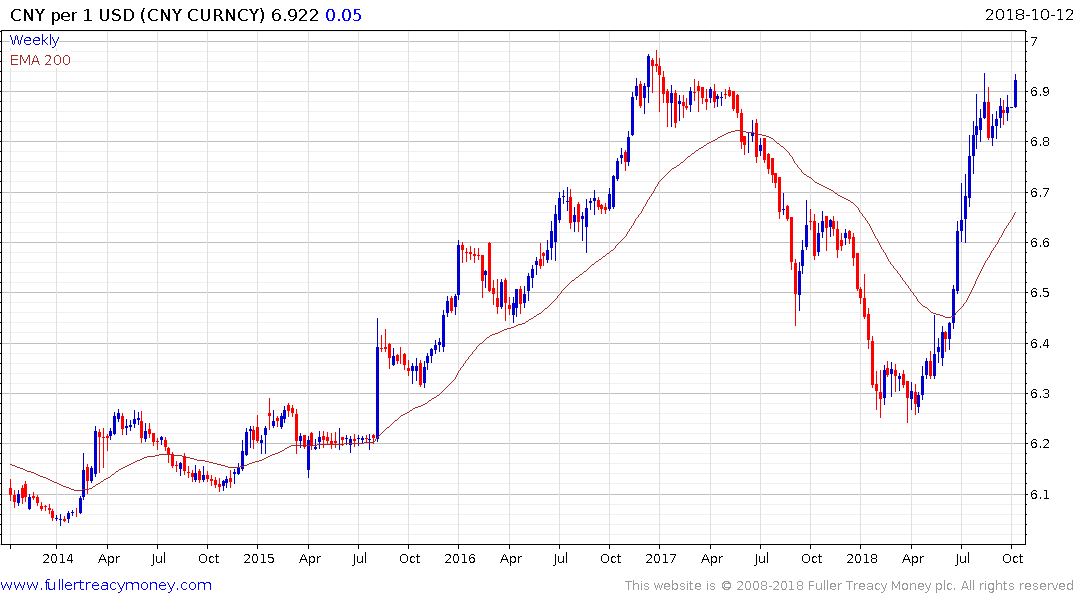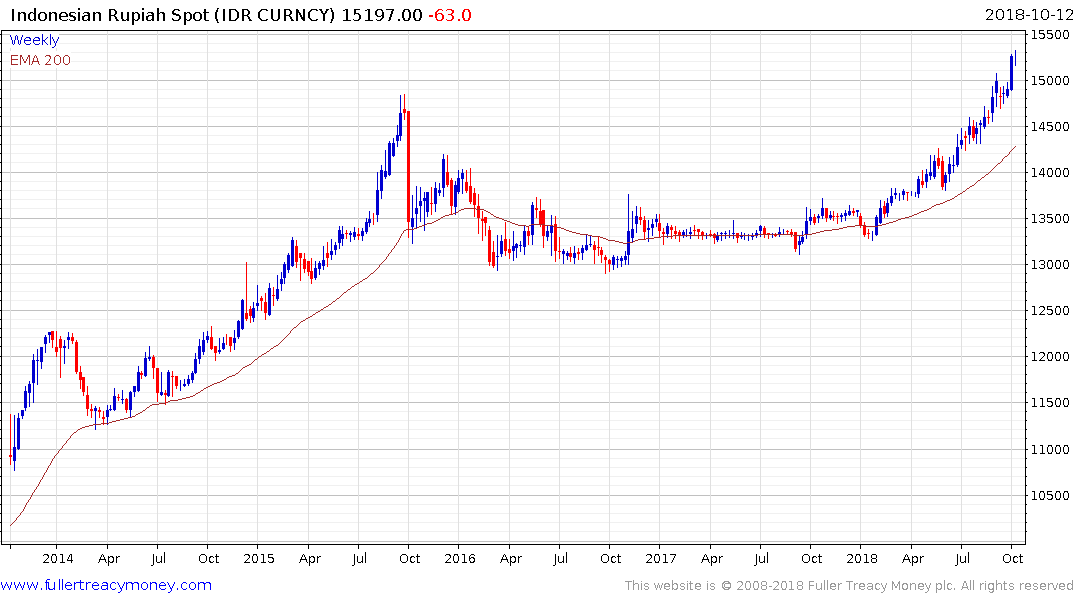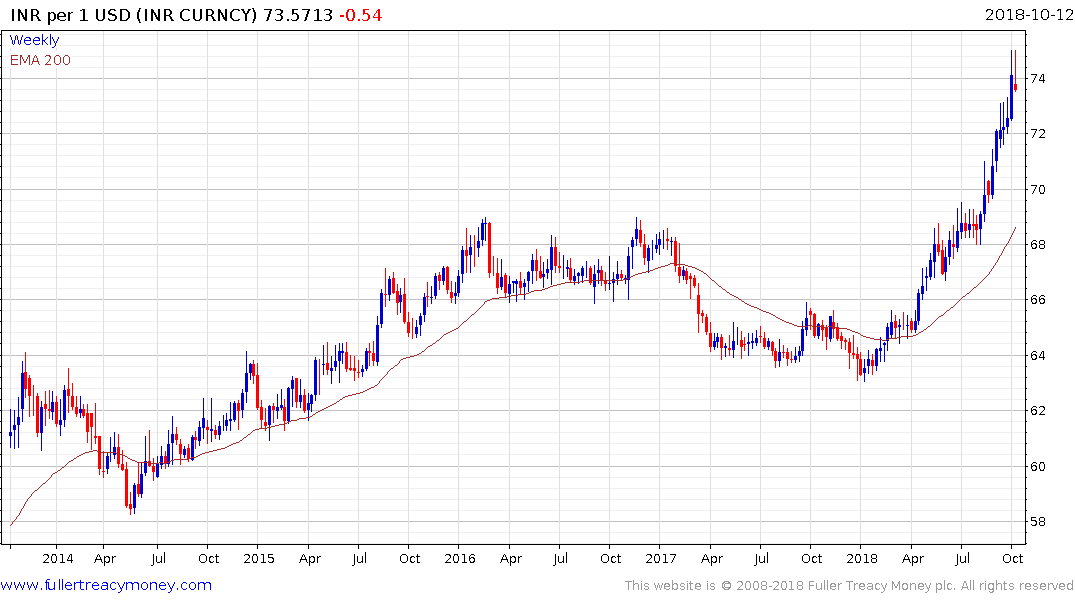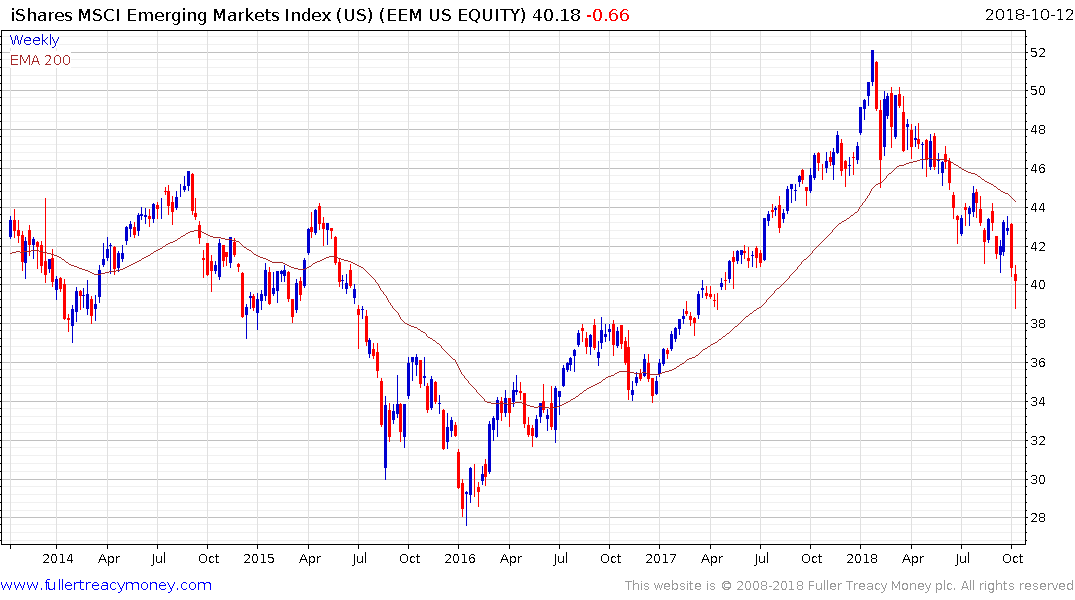U.S. Treasury Staff Said to Find China Isn't Manipulating Yuan
This article by Saleha Mohsin and Jenny Leonard for Bloomberg may be of interest to subscribers. Here is a section:
Treasury said in its April report that it is considering expanding the number of countries it examines from 13, with analysts speculating that the number could go as high as 20. Such a move would be a sign of the Trump administration ramping up its use of the currency channel to negotiate better trade deals for the U.S.
Mnuchin has said since July that Treasury is concerned about the yuan’s recent drop. The currency has slid more than 9 percent against the dollar in the last six months, raising speculation that China has been deliberately weakening its currency as tensions with the U.S. escalate.
The Trump administration has pivoted to a more aggressive stance toward China since the president said last month the country is interfering in U.S. elections. Vice President Mike Pence delivered a speech last week in Washington signaling a firmer U.S. push-back against Beijing as trade anxiety weighs on the looming midterm congressional elections.
The US administration imposed 10% tariffs on Chinese imports and the Renminbi dropped by about the same amount. If we are to conclude this is the market being particularly efficient then so be it, but Ockham’s Razor suggests the Chinese administration is managing the currency lower. That might be justified based on the slowing growth trajectory of the economy but the bigger issue is the Renminbi is weakening and that is putting downward pressure on just about all regional currencies.

Thanks to a subscriber for Russell Napier’s latest missive which may be of interest. Here is a section:
A particular challenge for Asian countries is how they might respond if the RMB is de-pegged from its basket of currencies, dominated by the USD and its surrogate currencies, and seeks to run a truly independent monetary policy. Should the RMB devalue as it most likely would, at least initially, would the US find it acceptable if Asian countries managed their exchange rates to also devalue with the RMB relative to the USD? To do so would lead the Asian authorities to increasingly accumulate RMB as part of their foreign reserve assets - very directly funding the Chinese government. Indeed, such a shift on a more global basis would create perhaps greater purchases of Chinese government debt than purchases of US government debt on an ongoing basis.
While the USD would continue to dominate the holdings of reserve assets, crucially the so-called ‘exorbitant privilege’ of having foreign central banks buy newly-created government debt might pass to China. How will the owner of the USD react to such a shift? In particular, will those Asian countries that rely upon the US for their defence be allowed to re-orientate their exchange rate/monetary policy increasingly towards China and away from the USA? Your analyst expects that this issue and many others will be raised at the ASEAN meeting in the second week of November and at APEC the week after. If nothing else, expect the USA to demand more public support from its Asian allies, perhaps even more clear military co-ordination.


The US Dollar’s strength, backed by a widening interest rate differential combined with China’s clear intention to allow the Renminbi to weaken further is contributing to downward pressure on the Indian Rupee and Indonesian Rupiah in particular but no Asian currency is currently appreciating versus the Dollar.

The iShares Emerging Markets ETF bounced from a short-term oversold condition today, and was helped along by a bounce in Tencent Holdings. However, a break in the sequence of lower rally highs, evident since January will be required to question the consistency of the downtrend.


